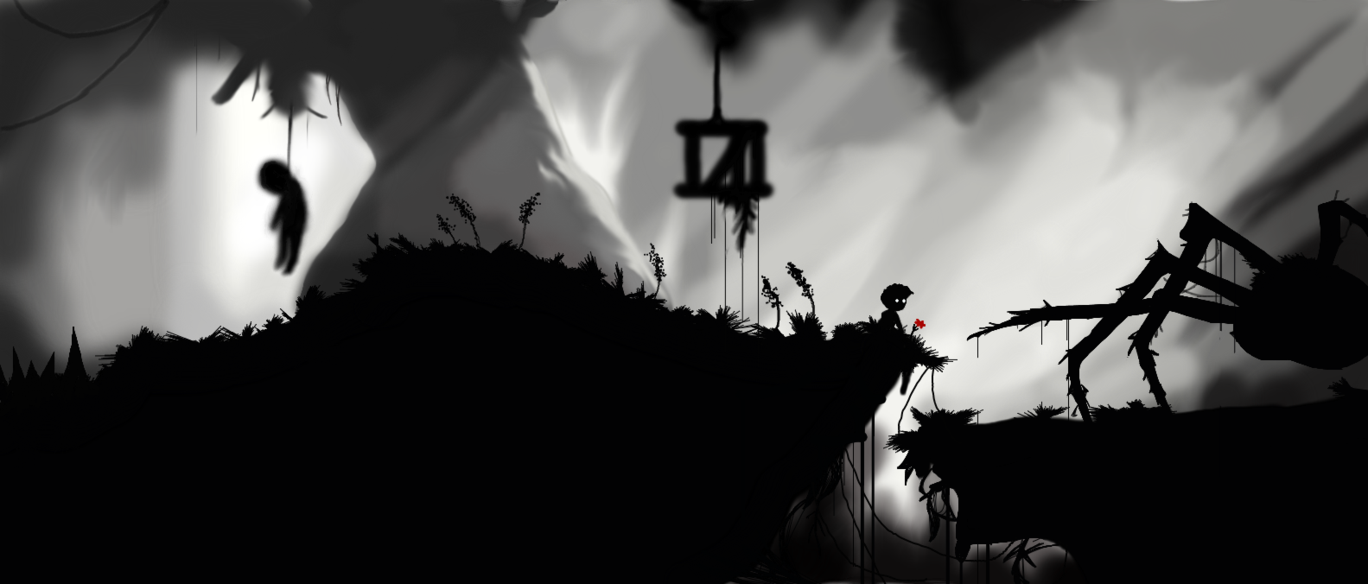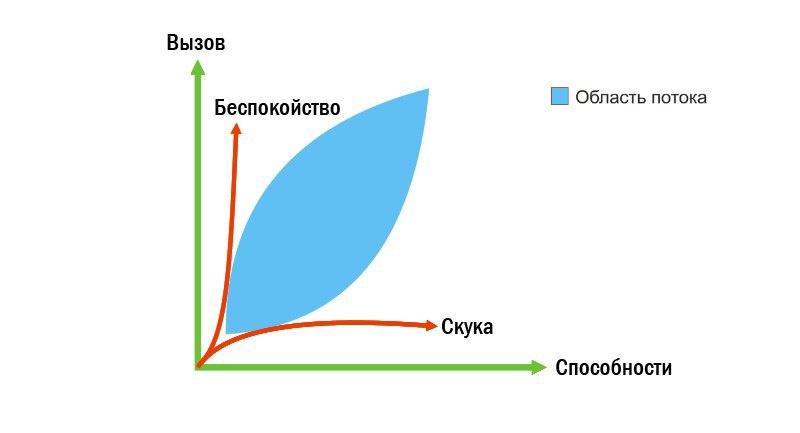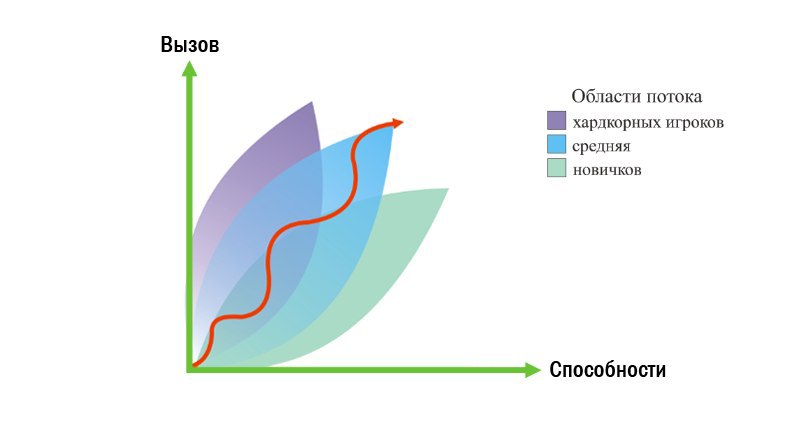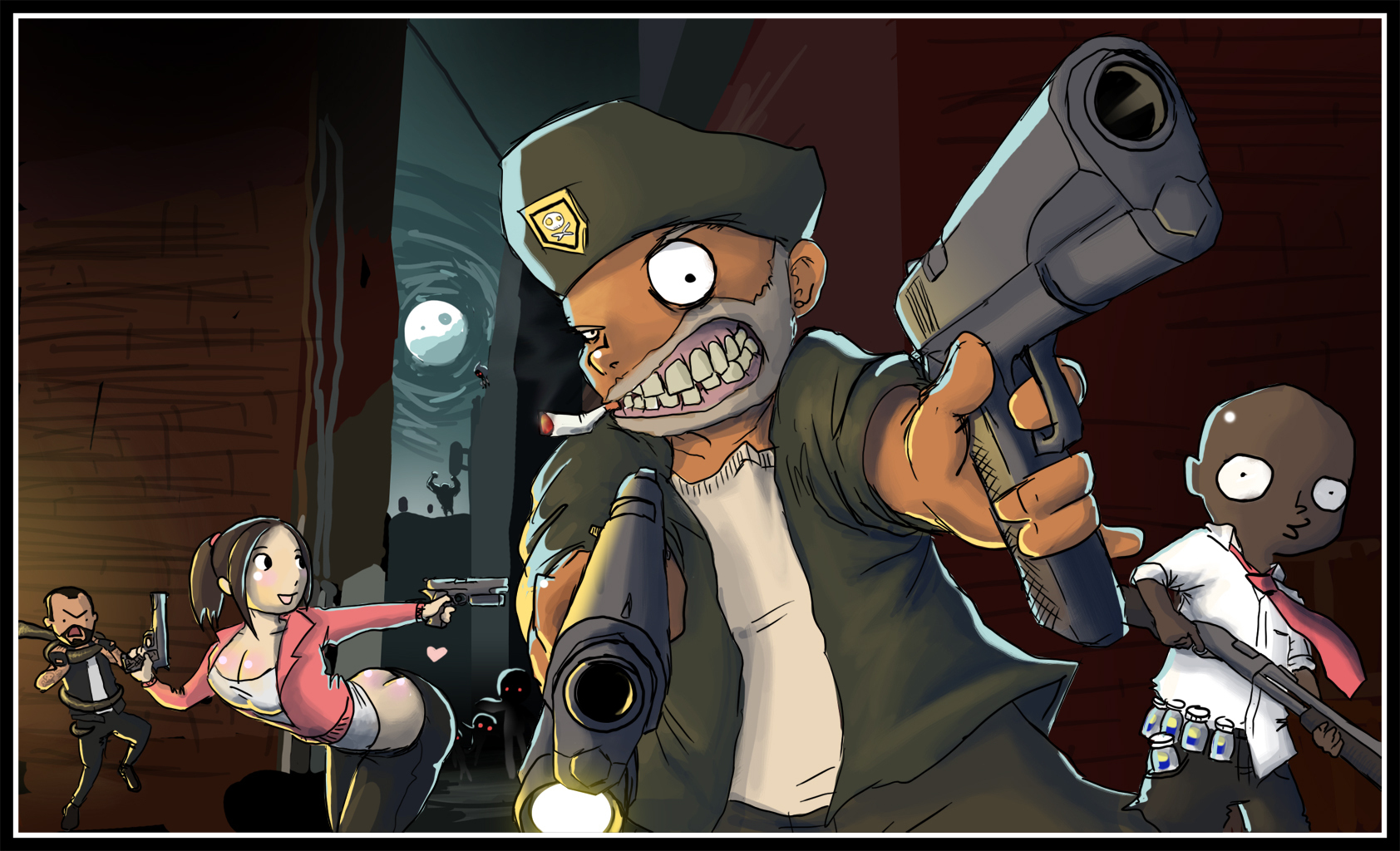Stream theory: how to create a game that everyone will love
Hello.
I am a game player. I can spend two weeks on the passage of one boss. On the way to work I can calculate the strategy of the battle with the enemy army. I can fall out of the chair because I did not notice how I sat out my leg during the three-hour raid. I can and practice.
If you are faced with similar problems - welcome to the club. Here we, as adults and very serious people, will try to analyze the state of immersion, which makes us admire the game and forget about the need to eat, sleep and live outside the game world. Simply put, it’s about streaming video games.
')

Cause and investigation
If you turn off the PS at 7 am, because it is time to get ready for work, you should know: you were hooked on the flow status. You tell your colleagues how they ran from zombies until the morning, and, most likely, spend money on merch or a disk with a remastered version of the game. The mechanism that was intentionally created by the developers worked. If you think that feelings of joy or happiness cannot be calculated, then you should familiarize yourself with the work of Professor Mihai Chikszentmihai “Flow: The Psychology of Optimal Experience”.
According to a professor with a difficult-to-pronounce last name, entering a state of flux means being fully involved in activities that bring joy, not noticing the time and ignoring even the basic needs of the body. The success of the game project directly depends on whether the player was able to enter the flow state in the process of passing.
I'll show you the magic
For a gamer, getting pleasure from the game is incomprehensible magic. You can spend hours thinking about the role of an interesting plot , high-quality graphics , music from the best composers . The presence of all these components, of course, has a great influence on the state of immersion. But it does not explain why, 15 years ago, we could play Tetris all day and night. Why the wave of popularity of Angry Birds made Finnish studio Rovio a billionaire. Why Dong Nguyen deleted Flappy Bird from the App Store despite the fact that the game brought him $ 50,000 a day.
In a state of flow a person is happy. And, in order to re-experience these emotions, he will be ready to pay any money. For the developer, creating a game that gets positive feedback and makes a profit is the perfect success scenario.
This scenario brought to life Jenov Chen. In 2006, while working on his dissertation, “The Flow in Video Games,” based on the Cixentmihaia theory, he created the flash game Flow. In the first two weeks after the release, the game was downloaded 100,000 times, and Chen signed a contract with Sony. Released on the PlayStation 3 Flow became the leader of downloads on the PlayStation Network in 2007. Jenova Chen along with fellow student Kelly Santiago founded the studio thatgamecompany, which gave the world such games as Flower and Journey.

Constructor of happiness
Jenova Chen, in her dissertation, proved that the flow in video games is not magic, but a state into which a person can be introduced by connecting a number of components in the gameplay:
1. Clear tasks
In Dragon Age: Inquisition many quests are aimed at finding objects. There is a certain search area on the map, but the beauty is that the object itself is inactive. Search is a new feature that is activated by pressing a certain key. And if a player, having opened his mouth from the beauty of Tedas, missed the explanation of this function, then he will run for hours in the quest area and sob from impotence. I met people who had gone through a third of the game and never discovered the possibility of searching for objects.
Explain to the player what he should do. Include in the game the opportunity to question the NPC issuing the quest, or read a detailed description of the problem in the diary of the protagonist. Make sure that even the most inattentive Bobby will understand what to do. Otherwise, the state of the stream will be disturbed by the reflections “Damn, what button should I press here?”.
If the mechanics of the game are hard to understand intuitively, it is useful to add a training mode to the game. In social and mobile games, this mode is often represented by a wizard - a functional that explains the main features in a game form and briefly introduces the lore and the universe. In Plarium games, for example, there are characters who, in the early stages, give players small quests and explain the basics of gameplay.

In general, the entire game interface should be designed to help the player solve the problem: add marks, pointers, or visual effects on the map that would pave the way to the goal. Do not submit important information during the active phases of the game: fights with the enemy, running, dialogues. Tell the player that he can wait in the future. For example, the first movement in Limbo - “Wrong direction” - serves two purposes at the same time: to show which way to run, and also to stimulate the craving for exploring the game world. To solve some problems in this game, the main character will sometimes have to run in the wrong direction.

2. Lack of distractions
I am attacked by a mob-succubus, what beautiful eyes she has, and also a piercing ... to see a tattoo on her lower back ... Hey! Have you already killed me ?!
Despite the fact that the human brain processes huge amounts of information every second, it is difficult for us to concentrate on several things at the same time. Distractions can dislodge a person from the flow state, therefore it is necessary to minimize the influence of the game interface or excessively bright game events. When casting a spell, the player must focus on hitting the target, and not consider hand animation or a fireball.

Of course, you can get used to anything. But a large number of distractions complicates the gameplay and increases the entry threshold for a beginner. Accordingly, a significant part of users will lose the feeling of immersion and “fall off” in the early stages of the game. This problem is connected with the tendency to simplify the game interface.
3. Visible result
I play Neverwinter nights, and there is just a lot of different alcohol to drink! What happens if you drink a bottle? Can I fight? Will this affect the character? Will my tongue get stuck in the dialogues? Will I be able to create an alcoholic character?
More than 300 years ago, Newton proved that every action has a reaction. In games, the opposition and the result must always be clear and timely. You put bricks of the same color in a line - and you get a bonus, you craft a potion - and it is placed in your inventory, and the potion teacher opens.
The human brain is designed so that, having received feedback on the result immediately after the completion of the action or approximately in the middle of its commission, it creates a strong associative connection between the action and the result. And the result, in turn, stimulates to continue the game and achieve new goals.

About six months ago we introduced the ability to track the movement of troops on the map in our strategies. As soon as a player sends an army to attack, he receives a notification that a collision with an opponent will occur after a certain time. The distance and speed of movement of units can be viewed on the global map. In games, where the result of the action is visible only after some time, the role of notifications and visualization is especially great.

4. Relevance of the player’s abilities to the tasks
The first game boss! Fine. I will kill you, do not let it the first time. And not from the fifth. And not from the eighth? Can I even kill you? Maybe I started this quest early, and it was worth pumping more? And what now to load the save five hours ago? Fuck it all.
Make sure the player is able to complete the task. This applies not only to the level of character leveling, but also to a person’s physical abilities - can he quickly reach the desired button? Conduct tests with different target audiences - the game should be accessible to everyone, not just trained rambo with tunnel syndrome.


In the strategy “Conflict: The Art of War”, the character-wizard, Mr. Black, gives assignments to newcomers. The first of them are connected with the construction of the main resource buildings. However, many users advised us to include PvP-battle in one of the initial stages of training. When we formed a test group and conducted an experiment, it turned out that most players are not ready for battle at the first stage of the game - they still do not have the necessary skills, ideas about game mechanics, so users left just at the stage of the first battle.
Those mechanics that are obvious to you or experienced gamers can repel a beginner, knock him out of a state of flow and spoil the first impression of the game. For example, even those who left a positive review about the project The Void from the studio Ice-pick Lodge, noted the complex mechanics and the lack of clear guidelines in the game.
Balancing between "very difficult" and "very boring" - this is the ideal state that can cause the player to feel the flow of the gameplay. At the same time, the abilities of the players are sometimes completely different, and it can be quite difficult to determine the flow area. Even the ability to switch difficulty modes does not always work.
One of the solutions to the problem is a dynamic AI, which monitors the success of the player and automatically adjusts the complexity (AI Director in the Left 4 Dead series).

You will recognize him
If the four basic parameters are observed, and in addition to this, the game pleases with excellent graphics, sound and a fascinating plot, then the person goes head to head into the game world and desperately resists if someone tries to pull him out. In doing so, he is experiencing:
1. A sense of control over the situation
There can be nothing better than the realization that the decisions made change the environment. Each act will affect the game world, and at the same time you fully control the character. The absolute ring is already in your hands.
At the same time, a loss of control can be an interesting gaming experience, such as the main character’s madness in Amnesia: The Dark Descent or the effects of madness in Eternal Darkness: Sanity's Requiem. In the latter case, the character’s insanity can manifest itself in spontaneous deactivation of the gamepad, demonstration of a blue screen, removal of saves, or a change in sound volume.
2. Lack of self-awareness
Complete dissolution in activities and identification with the game character. You are no longer the 35-year-old father of three children, you are the girl Clementine, and do what an 11-year-old schoolgirl should do, surrounded by a zombie. Or you are a part of the Horde, and you are ready to destroy aleni for your own, even in real life. It is precisely the loss of self-awareness that is the most powerful psychological stimulus to continue the game, as well as an excellent retention tool.
3. Lack of sense of time
I think everyone knows the situation when I sat down to play for an hour in the evening and woke up at dawn. But the boss is gone.
The loss of a sense of time is one of the most important indicators by which you can determine whether a player has managed to experience a sense of flow.

Why am i
Most developers consciously or unknowingly use the basic principles of flow theory in their projects. Understandable and doable quests, the visible result of actions and the minimum amount of distractions can introduce a person into the game stream, which is manifested in a complete immersion into the game universe and a loss of sense of time (and some money). The state of flow, positive emotions during gameplay - this is real gaming happiness. And for the developer, there can be nothing better than a happy player.
PS: The state of flow in games is a topic for large-scale research. For a more detailed study of this phenomenon, I recommend the following materials:
I am a game player. I can spend two weeks on the passage of one boss. On the way to work I can calculate the strategy of the battle with the enemy army. I can fall out of the chair because I did not notice how I sat out my leg during the three-hour raid. I can and practice.
If you are faced with similar problems - welcome to the club. Here we, as adults and very serious people, will try to analyze the state of immersion, which makes us admire the game and forget about the need to eat, sleep and live outside the game world. Simply put, it’s about streaming video games.
')

Cause and investigation
If you turn off the PS at 7 am, because it is time to get ready for work, you should know: you were hooked on the flow status. You tell your colleagues how they ran from zombies until the morning, and, most likely, spend money on merch or a disk with a remastered version of the game. The mechanism that was intentionally created by the developers worked. If you think that feelings of joy or happiness cannot be calculated, then you should familiarize yourself with the work of Professor Mihai Chikszentmihai “Flow: The Psychology of Optimal Experience”.
According to a professor with a difficult-to-pronounce last name, entering a state of flux means being fully involved in activities that bring joy, not noticing the time and ignoring even the basic needs of the body. The success of the game project directly depends on whether the player was able to enter the flow state in the process of passing.
I'll show you the magic
For a gamer, getting pleasure from the game is incomprehensible magic. You can spend hours thinking about the role of an interesting plot , high-quality graphics , music from the best composers . The presence of all these components, of course, has a great influence on the state of immersion. But it does not explain why, 15 years ago, we could play Tetris all day and night. Why the wave of popularity of Angry Birds made Finnish studio Rovio a billionaire. Why Dong Nguyen deleted Flappy Bird from the App Store despite the fact that the game brought him $ 50,000 a day.
In a state of flow a person is happy. And, in order to re-experience these emotions, he will be ready to pay any money. For the developer, creating a game that gets positive feedback and makes a profit is the perfect success scenario.
This scenario brought to life Jenov Chen. In 2006, while working on his dissertation, “The Flow in Video Games,” based on the Cixentmihaia theory, he created the flash game Flow. In the first two weeks after the release, the game was downloaded 100,000 times, and Chen signed a contract with Sony. Released on the PlayStation 3 Flow became the leader of downloads on the PlayStation Network in 2007. Jenova Chen along with fellow student Kelly Santiago founded the studio thatgamecompany, which gave the world such games as Flower and Journey.

Constructor of happiness
Jenova Chen, in her dissertation, proved that the flow in video games is not magic, but a state into which a person can be introduced by connecting a number of components in the gameplay:
1. Clear tasks
In Dragon Age: Inquisition many quests are aimed at finding objects. There is a certain search area on the map, but the beauty is that the object itself is inactive. Search is a new feature that is activated by pressing a certain key. And if a player, having opened his mouth from the beauty of Tedas, missed the explanation of this function, then he will run for hours in the quest area and sob from impotence. I met people who had gone through a third of the game and never discovered the possibility of searching for objects.
Explain to the player what he should do. Include in the game the opportunity to question the NPC issuing the quest, or read a detailed description of the problem in the diary of the protagonist. Make sure that even the most inattentive Bobby will understand what to do. Otherwise, the state of the stream will be disturbed by the reflections “Damn, what button should I press here?”.
If the mechanics of the game are hard to understand intuitively, it is useful to add a training mode to the game. In social and mobile games, this mode is often represented by a wizard - a functional that explains the main features in a game form and briefly introduces the lore and the universe. In Plarium games, for example, there are characters who, in the early stages, give players small quests and explain the basics of gameplay.

In general, the entire game interface should be designed to help the player solve the problem: add marks, pointers, or visual effects on the map that would pave the way to the goal. Do not submit important information during the active phases of the game: fights with the enemy, running, dialogues. Tell the player that he can wait in the future. For example, the first movement in Limbo - “Wrong direction” - serves two purposes at the same time: to show which way to run, and also to stimulate the craving for exploring the game world. To solve some problems in this game, the main character will sometimes have to run in the wrong direction.

2. Lack of distractions
I am attacked by a mob-succubus, what beautiful eyes she has, and also a piercing ... to see a tattoo on her lower back ... Hey! Have you already killed me ?!
Despite the fact that the human brain processes huge amounts of information every second, it is difficult for us to concentrate on several things at the same time. Distractions can dislodge a person from the flow state, therefore it is necessary to minimize the influence of the game interface or excessively bright game events. When casting a spell, the player must focus on hitting the target, and not consider hand animation or a fireball.

Of course, you can get used to anything. But a large number of distractions complicates the gameplay and increases the entry threshold for a beginner. Accordingly, a significant part of users will lose the feeling of immersion and “fall off” in the early stages of the game. This problem is connected with the tendency to simplify the game interface.
3. Visible result
I play Neverwinter nights, and there is just a lot of different alcohol to drink! What happens if you drink a bottle? Can I fight? Will this affect the character? Will my tongue get stuck in the dialogues? Will I be able to create an alcoholic character?
More than 300 years ago, Newton proved that every action has a reaction. In games, the opposition and the result must always be clear and timely. You put bricks of the same color in a line - and you get a bonus, you craft a potion - and it is placed in your inventory, and the potion teacher opens.
The human brain is designed so that, having received feedback on the result immediately after the completion of the action or approximately in the middle of its commission, it creates a strong associative connection between the action and the result. And the result, in turn, stimulates to continue the game and achieve new goals.

About six months ago we introduced the ability to track the movement of troops on the map in our strategies. As soon as a player sends an army to attack, he receives a notification that a collision with an opponent will occur after a certain time. The distance and speed of movement of units can be viewed on the global map. In games, where the result of the action is visible only after some time, the role of notifications and visualization is especially great.

4. Relevance of the player’s abilities to the tasks
The first game boss! Fine. I will kill you, do not let it the first time. And not from the fifth. And not from the eighth? Can I even kill you? Maybe I started this quest early, and it was worth pumping more? And what now to load the save five hours ago? Fuck it all.
Make sure the player is able to complete the task. This applies not only to the level of character leveling, but also to a person’s physical abilities - can he quickly reach the desired button? Conduct tests with different target audiences - the game should be accessible to everyone, not just trained rambo with tunnel syndrome.


In the strategy “Conflict: The Art of War”, the character-wizard, Mr. Black, gives assignments to newcomers. The first of them are connected with the construction of the main resource buildings. However, many users advised us to include PvP-battle in one of the initial stages of training. When we formed a test group and conducted an experiment, it turned out that most players are not ready for battle at the first stage of the game - they still do not have the necessary skills, ideas about game mechanics, so users left just at the stage of the first battle.
Those mechanics that are obvious to you or experienced gamers can repel a beginner, knock him out of a state of flow and spoil the first impression of the game. For example, even those who left a positive review about the project The Void from the studio Ice-pick Lodge, noted the complex mechanics and the lack of clear guidelines in the game.
Balancing between "very difficult" and "very boring" - this is the ideal state that can cause the player to feel the flow of the gameplay. At the same time, the abilities of the players are sometimes completely different, and it can be quite difficult to determine the flow area. Even the ability to switch difficulty modes does not always work.
One of the solutions to the problem is a dynamic AI, which monitors the success of the player and automatically adjusts the complexity (AI Director in the Left 4 Dead series).

You will recognize him
If the four basic parameters are observed, and in addition to this, the game pleases with excellent graphics, sound and a fascinating plot, then the person goes head to head into the game world and desperately resists if someone tries to pull him out. In doing so, he is experiencing:
1. A sense of control over the situation
There can be nothing better than the realization that the decisions made change the environment. Each act will affect the game world, and at the same time you fully control the character. The absolute ring is already in your hands.
At the same time, a loss of control can be an interesting gaming experience, such as the main character’s madness in Amnesia: The Dark Descent or the effects of madness in Eternal Darkness: Sanity's Requiem. In the latter case, the character’s insanity can manifest itself in spontaneous deactivation of the gamepad, demonstration of a blue screen, removal of saves, or a change in sound volume.
2. Lack of self-awareness
Complete dissolution in activities and identification with the game character. You are no longer the 35-year-old father of three children, you are the girl Clementine, and do what an 11-year-old schoolgirl should do, surrounded by a zombie. Or you are a part of the Horde, and you are ready to destroy aleni for your own, even in real life. It is precisely the loss of self-awareness that is the most powerful psychological stimulus to continue the game, as well as an excellent retention tool.
3. Lack of sense of time
I think everyone knows the situation when I sat down to play for an hour in the evening and woke up at dawn. But the boss is gone.
The loss of a sense of time is one of the most important indicators by which you can determine whether a player has managed to experience a sense of flow.

Why am i
Most developers consciously or unknowingly use the basic principles of flow theory in their projects. Understandable and doable quests, the visible result of actions and the minimum amount of distractions can introduce a person into the game stream, which is manifested in a complete immersion into the game universe and a loss of sense of time (and some money). The state of flow, positive emotions during gameplay - this is real gaming happiness. And for the developer, there can be nothing better than a happy player.
PS: The state of flow in games is a topic for large-scale research. For a more detailed study of this phenomenon, I recommend the following materials:
- Communication and streaming experience in group role-playing games mediated by the Internet
- Applying game theory: stream channel
- Develop cool games! Flow, motivation and fun
- Immersion in computer games: the role of flow and the sense of presence
- Stream: The Psychology of Excellent Game Design
- The concept of flow in video games
- Flow model and the role of in-game data
- We construct the flow condition
Source: https://habr.com/ru/post/244831/
All Articles